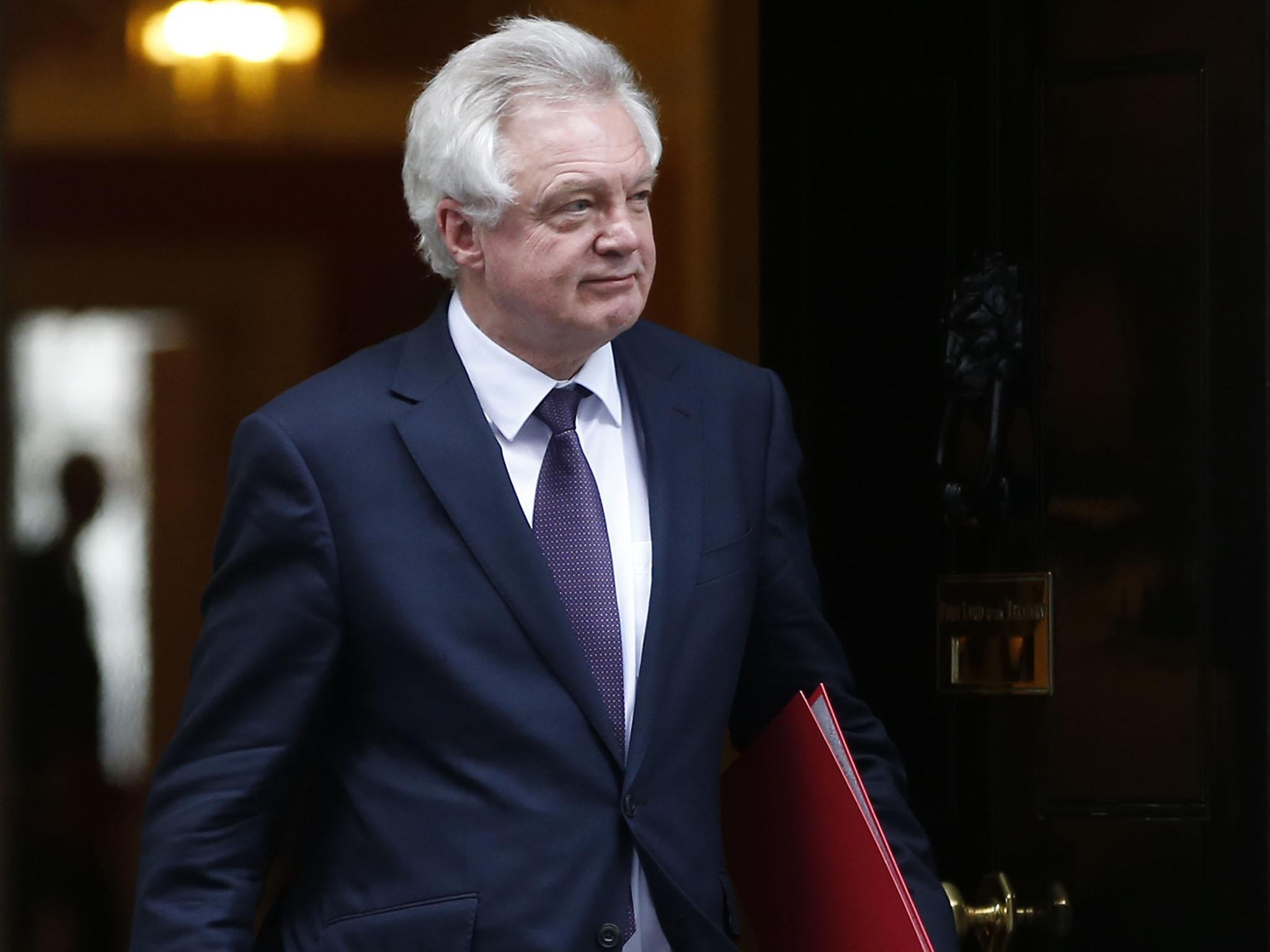Your support helps us to tell the story
From reproductive rights to climate change to Big Tech, The Independent is on the ground when the story is developing. Whether it's investigating the financials of Elon Musk's pro-Trump PAC or producing our latest documentary, 'The A Word', which shines a light on the American women fighting for reproductive rights, we know how important it is to parse out the facts from the messaging.
At such a critical moment in US history, we need reporters on the ground. Your donation allows us to keep sending journalists to speak to both sides of the story.
The Independent is trusted by Americans across the entire political spectrum. And unlike many other quality news outlets, we choose not to lock Americans out of our reporting and analysis with paywalls. We believe quality journalism should be available to everyone, paid for by those who can afford it.
Your support makes all the difference.Brexit talks between British and European Commission officials will resume later this week in Brussels, following a warning from Brussels that time is limited to solve the Irish border issue.
Chief negotiator Michel Barnier on Monday said the border issue needed “substantive” progress before the European Council summit at the end of June.
There are just four more rounds of meetings scheduled before the summit, with officials having paused their meetings last week to take stock.
Negotiations will take place on Wednesday, Thursday, and Friday – with the UK side being led by Olly Robbins, Theresa May’s Downing Street Brexit chief, rather than Brexit Secretary David Davis.
Sabine Weyand, Michel Barnier’s deputy and Mr Robbins’s coordinator counterpart, will lead officials on the UK side.
The Irish border and separation issues are expected to dominate talks, with discussions between Mr Robbins and Ms Weyand also set to take place. The round of talks will end with a stock-taking exercise.
Mr Barnier was in Ireland and Northern Ireland on Monday and Tuesday of this week meeting with civil society and business leaders in border communities to discuss the impact of Brexit. Mr Davis, who is not expected to travel to Brussels for this round of meetings, also visited the border earlier this month.
The EU chief negotiator earlier this week said there was a need for a “self-standing” backstop solution to the Irish border which would prevent a hard border in the event of other issues not being agreed.

He said major parts of the border issue needed to be agreed “rapidly by June” and warned there was a “real risk” that talks could collapse over the issue.
DUP leader Arlene Foster meanwhile accused Mr Barnier of not understanding the unionist position on the border.
British diplomats in Brussels are confident that a solution can be found to the border, and say they want to make progress as quickly as possible. But they argue that solving the issue needed discussions on the future relationship, which only started last week after months of insistence by the UK.
Brussels has consistently said that the whole withdrawal agreement, including citizens’ rights, the financial settlement, transition period, and Northern Ireland border needs to be agreed by the October meeting of the European Council in order to give time for the deal to be scrutinised and approved by bodies such as the European parliament.
The council, a quarterly Brussels summit attended by the 28 EU heads of state and government, generally has to sign off major decisions made by the European Union. With Britain set to fall out of the EU on 29 March 2019, the only real opportunity for the council to approve any deal after October would be a further summit in December. The next summit is scheduled for 21 March 2019, a date both sides want to avoid dragging talks out until

Join our commenting forum
Join thought-provoking conversations, follow other Independent readers and see their replies
Comments